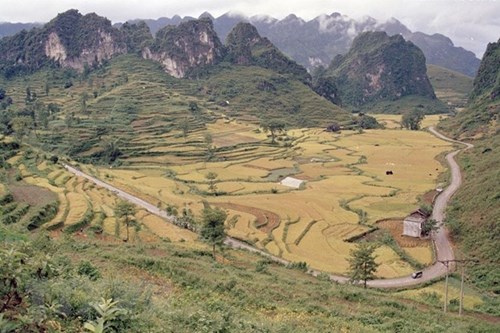At a working session with representatives of the provincial People’s Committee, UNESCO experts said Cao Bang has launched three tours in the geopark and paid attention to ensuring safety for tourists, while stepping up the information work in order to promote the image of the tourist site.
    |
 |
|
Non Nuoc Cao Bang Geopark recognized as a global geopark by the UNESCO Global Geoparks Council |
However, they said, there remain limitations regarding the quality of notice boards, parking lots and management work.
Given this, they suggested the province plant more notice boards to attract holiday-makers, and the provincial People’s Committee and the geopark’s management board closely coordinate with localities and residents in the management work.
The management board should be authorized to handle specific violations, they said, stressing the need to develop a staff of professional tour guides at the geopark.
Cao Bang authorities called on UNESCO to soon set forth a master and detailed plan to deal with shortcomings in the development and protection of the geopark, and suggested UNESCO experts to help with measures to protect open-air fossils and promote values of heritage at the park.
Non Nuoc Cao Bang Geopark was recognized as a global geopark by the UNESCO Global Geoparks Council in Paris on April 12.
This is the second UNESCO-recognized Global Geopark in Vietnam after Dong Van Karst Plateau in the northern mountainous province of Ha Giang, which was recognized in 2010.
Non Nuoc Cao Bang is about 300km from Hanoi capital city. It covers more than 3,000 sq.km. in the districts of Ha Quang, Tra Linh, Quang Uyen, Trung Khanh, Ha Lang and Phuc Hoa and part of Hoa An, Nguyen Binh and Thach An districts.
The geopark is home to fossils, ocean sediment, volcanic rocks, minerals, and especially karst landscapes, which can give researchers an insight into an over-500-million-year history of the Earth. It is also well known for rich biodiversity and many indigenous fauna and flora species.
Aside from natural values, it also contains a number of tangible and intangible cultural heritage, particularly revolutionary relic sites such as special national relic site of Pac Bo, where Nguyen Ai Quoc or President Ho Chi Minh returned to Vietnam in 1941 to lead the domestic revolution after spending over 30 years in other countries to seek ways to save the country.
The geopark is also home to special national relic site of Tran Hung Dao Forest, where then General Vo Nguyen Giap in 1944 established the Vietnam Propaganda and Liberation Army, the predecessor of the Vietnam People’s Army today.
Source: VNA